The current practice of private investors' participation in ensuring social security policies for people when the state reclaims land in Hue city
According to the 2020 land statistics, the natural area of Thua Thien Hue province (now Hue city) is 494,711 hectares, of which: Agricultural land area is 401,565 hectares, accounting for 81.17% of the total natural area; non-agricultural land: 87,083 hectares, accounting for 17.60% of the total natural area; unused land: 6,063 hectares, accounting for 1.23% of the total natural area (1) . On November 30, 2024, the National Assembly issued Resolution No. 175/2024/QH15, "On the establishment of Hue City under the Central Government" on the basis of preserving and promoting the heritage values of the Ancient Capital and Hue cultural identity with cultural, heritage, ecological, landscape, environmentally friendly and smart characteristics on the basis of the entire natural area of more than 4,947.11 km², with a population of about 1.2 million people. In order to achieve the goals set out in Resolution No. 54-NQ/TW, dated December 10, 2019, of the Politburo , “On the construction and development of Thua Thien Hue province to 2030, with a vision to 2045”, Hue city has been implementing many socio-economic development projects (2) , especially in the fields of tourism , industry and infrastructure construction, new urban areas, leading to frequent land acquisition. In that process, investors play a role not only as project implementers but also have social responsibility in ensuring social security for people affected by the projects.
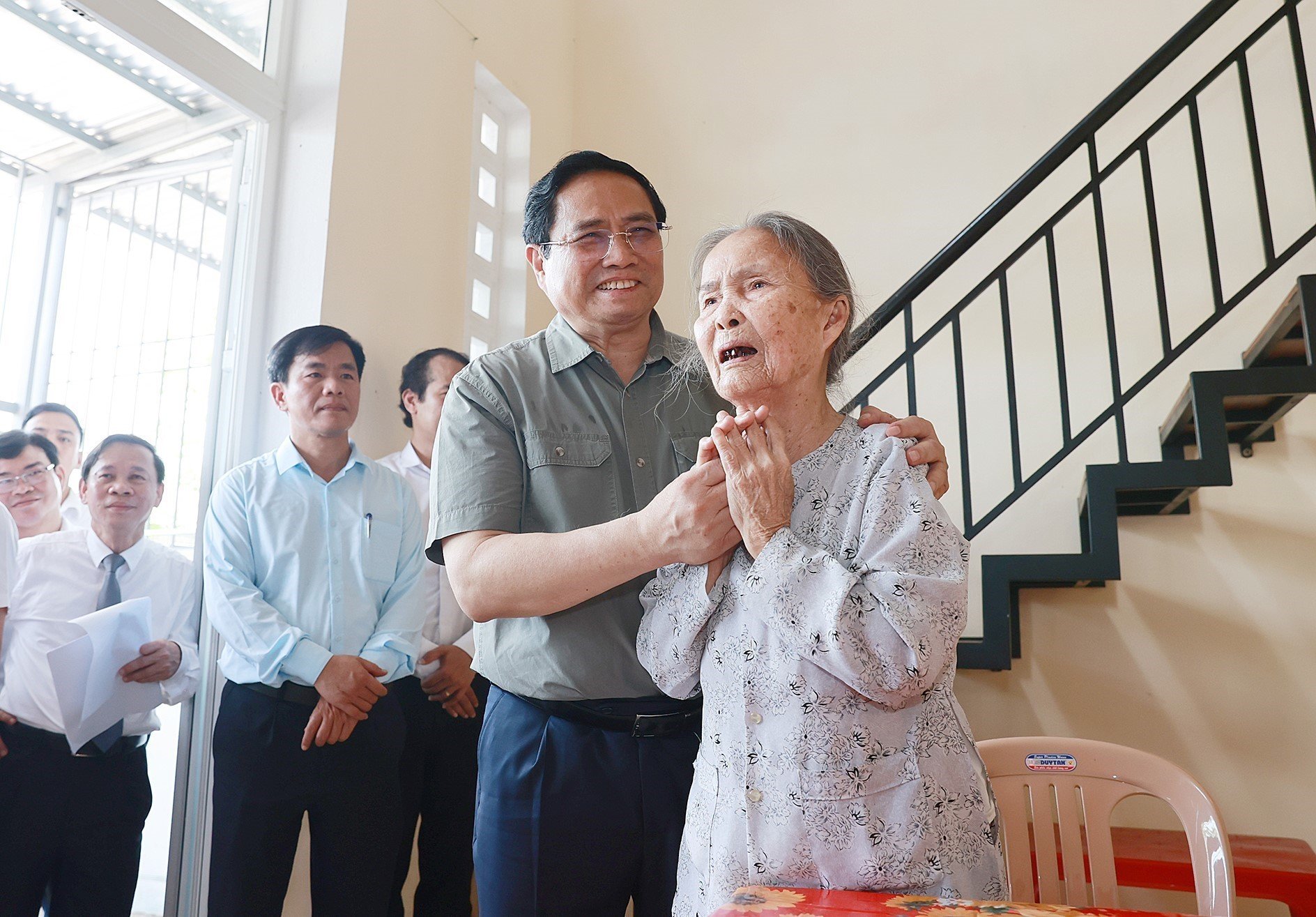
One of the active forms of investor participation is resettlement support. Project investors have proactively coordinated closely with local authorities to build new resettlement areas, not only meeting housing needs but also ensuring living conditions in terms of technical infrastructure and social services equivalent to or better than the old areas, thereby contributing to stabilizing the lives of affected people.
For the Hai Van tunnel expansion project, compensation and site clearance for the construction of the bridge and the southern approach road have been completed; for the northern section, although the investor has transferred enough funds to the locality to carry out site clearance, there are still problems because some households refuse to relocate to the new resettlement area. The investor has coordinated with authorities at all levels to organize dialogues and resolve petitions, thanks to which the households subject to clearance have agreed to hand over the site (4) . Along with the compensation funds, the investor has supported the households with rent while waiting for new houses to be built in the resettlement area. It can be seen that the site clearance work has been carried out effectively, clearly demonstrating the close coordination between the investor, local authorities and the people. The investor has demonstrated a high sense of responsibility by ensuring capital sources; Meanwhile, the local government has actively organized dialogues, resolved petitions, and created favorable conditions for the people. Thanks to these efforts, the consensus rate of the people has been very high, contributing to ensuring the progress of the project and meeting the current transportation needs through the Hai Van tunnel.
The East Urban Area Project of Thuy Duong - Thuan An Road, in Area E - An Van Duong New Urban Area, has also allocated a significant area for social housing, demonstrating the social responsibility of the investor, helping to solve the housing needs of low-income people. In the project of investing in the construction and business of infrastructure of Gilimex Industrial Park (in Phu Bai Industrial Park, Huong Thuy Town), the investor has strictly complied with the regulations of the Provincial People's Committee on compensation prices for houses, crops, land, and graves according to the issued decisions (5) . Based on the content of the people's petition about the compensation price being too low, not enough funds to build a new place to stabilize life, and relocate graves, the investor and the People's Committee of Huong Thuy Town have proactively coordinated and petitioned the superior agency, demonstrating flexibility and accepting opinions. The regulations on compensation prices have been adjusted promptly based on the petitions of the locality and the people. Thanks to that, the People's Committee of Thua Thien Hue province (now Hue city) and the Department of Construction issued an Official Dispatch directing "Issuing unit prices of houses, works, architectural objects and types of graves as a basis for calculating compensation and support when the State acquires land in the province", contributing to ensuring the rights of those affected by the project, ensuring transparency, fairness and legality in the compensation process, ensuring harmony of interests between the people and the State in order to contribute to the socio-economic development of the locality, creating trust for the people.
Along with that, private investors also have policies to support vocational training to ensure social security for people affected by the land acquisition process. More than 65% of the land acquired in Hue city belongs to the agricultural land group; of which in 2020, it was more than 273 hectares of land of all kinds, with more than 183 hectares of agricultural land, in 2021, it was more than 359 hectares of land of all kinds, with more than 227 hectares of agricultural land, in 2022, it was more than 434 hectares of land of all kinds, with more than 546 hectares of agricultural land, in 2023, it was more than 723 hectares of land of all kinds, of which 498.65 hectares of agricultural land. The implementation of agricultural land acquisition has an impact on people's livelihoods, leading to many workers losing their traditional jobs, having to change to other occupations or falling into unemployment. To solve the employment problem for farming households whose land was recovered when the State recovered land, the People's Committee of Thua Thien Hue province (now Hue city) directed investors to commit to accepting relatives (of working age) of families whose land was recovered to work in companies and factories. Hue city currently has 6 industrial parks with a total area of 2,400 hectares. The industrial parks not only create jobs for tens of thousands of workers but also attract more than 170 investment projects, including many large FDI projects. In addition, a number of large projects have proactively coordinated with local vocational training centers to design training programs suitable to the needs of the labor market, associated with the Fourth Industrial Revolution, such as at Phong Dien Industrial Park - where the Scavi Group's factory is located, which stands out for its development of the garment industry. The Group has cooperated with local training centers to develop a high-quality workforce in textiles and garments. This helps people not only be equipped with the necessary vocational skills to integrate into the modern economy, but also have the opportunity to find stable jobs at these projects or affiliated businesses, contributing to improving income, improving quality of life, restoring and developing the local economy after land acquisition.
Regarding the financial resources of investors to support people whose land has been recovered, in addition to fulfilling the compensation obligations as prescribed by law, many investors have proactively paid additional support, such as the Urban Area project on the East side of Thuy Duong - Thuan An road with an area of 24.47 hectares, mainly rice fields, with a total investment of more than 1,785 billion VND, of which the cost of compensation and site clearance is 42.31 billion VND. The fact that investors have paid a large sum of money for site clearance compensation shows active cooperation with local authorities and a willingness to support people affected by the project. Thanks to that, affected people are guaranteed their property rights, have more resources to stabilize their lives, business, and production, contributing to minimizing the negative impacts of the urbanization process.
Investors also always focus on building and funding essential social infrastructure projects. Many educational, healthcare and public works projects are implemented in affected areas, contributing to improving the quality of life of the people. One of the highlights of the Urban Area project on the East side of Thuy Duong - Thuan An road is the commitment to synchronous investment in the infrastructure system, in which the newly built residential land of about 10.87 hectares (including 8.5 hectares of low-rise housing land and 23.4 hectares of social housing land) is invested in synchronous technical infrastructure systems, landscape trees, kindergartens and commercial services. Thereby, investors not only play the role of economic entities but also demonstrate social responsibility, contributing to building a sustainable community.
However, besides positive results, the implementation and deployment of projects in Hue city still has some limitations and shortcomings:
Firstly , although social security policies in general and for people when the State recovers land have been issued, their implementation has not been consistent. The cause of this problem is partly due to the incomplete legal framework on investment and social security, lacking consistency, leading to investors not having strong motivation to fulfill their commitments to ensure social security. In addition, the coordination mechanism between functional agencies is not tight, leading to overlapping in management and supervision; many other challenges have not been thoroughly handled, such as the lack of specific mandatory sanctions, some investors are not really interested in social responsibility or put profits above community interests.
Second, the current compensation level according to regulations is still really unreasonable, often determined according to the land price at the time of issuance of the decision to recover, while the actual value of the land has increased. This makes people feel disadvantaged, leading to complaints and lawsuits related to compensation, support, and resettlement. Although the 2024 Land Law has changed the new price calculation method, abolished the "land price frame" and regulated the "land price list". Accordingly, the "land price list" is built annually and the "first land price list" is announced and applied from January 1, 2026 and adjusted from January 1 of the following year, which will help the "land price list" approach the market land price, but this regulation will also increase the work pressure for localities and is still applied on the basis of the old land price frame.
Third , although some public-private partnership projects have been implemented, in general, the participation of private investors in social security activities when land acquisition is not timely. This causes the financial and resource burden mainly to fall on the state budget. Although many investors have made great contributions to the economic development process, they have not really paid attention to participating in social activities, such as funding charity activities, building schools, hospitals, supporting people affected by land acquisition; leading to a lack of consensus and support from the people, especially those directly affected by the land acquisition process, reducing the effectiveness of social security policies and creating barriers in the implementation of investment projects.
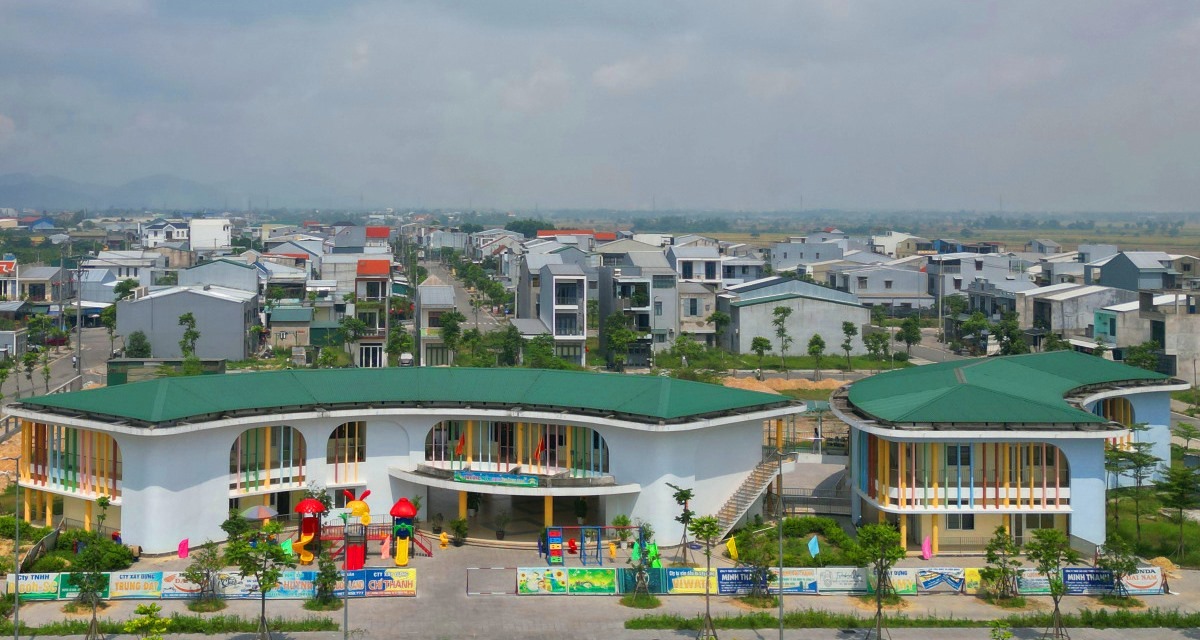
Solutions to enhance the role of investors in ensuring social security policies for people when the state reclaims land
In the context of socio-economic development, especially when land is recovered to serve economic, social and infrastructure projects, it is necessary to ensure a balance of interests between the State, investors and people whose land is recovered, in compliance with current legal regulations. To increase the participation of private investors in ensuring social security for people when the State recovers land, especially in cities, it is necessary to focus on implementing a number of specific solutions:
Firstly , as soon as the project is implemented, the investor needs to develop a detailed investment project, clearly stating the objectives, scale and positive impacts of the project on the community. Along with that, the investor must commit to providing sufficient capital to carry out compensation activities and support resettlement for people whose land is recovered. Commit to investing in social infrastructure works, such as schools, hospitals, roads... in the locality. This creates the basis for state agencies to approve the project.
Second , perfect the legal framework and develop clearer regulations on the social security responsibilities of investors during project implementation. This includes specific regulations on investors' obligations, such as resettlement support, job creation, and investment in local social welfare projects.
Third , strengthen inspection and close supervision to ensure that investors' commitments to ensure social security for people are fully implemented, encourage social security activities of enterprises, and raise public awareness of their rights. Investors coordinate closely with competent authorities to implement land recovery from people in accordance with regulations and legal procedures. On the contrary, local authorities need to clearly demonstrate their proactive role in coordinating with investors, supporting people in the process of transition and adaptation to the new life. It is necessary to set out policies to encourage enterprises to participate in social activities, while strengthening communication work to raise public awareness of the role of enterprises in sustainable development.
Fourth , increase the participation of private investors in support and resettlement activities. Private investors can provide flexible financial support packages, including preferential loans and consulting services, helping people access new investment opportunities, build new housing or change careers.
Fifth , promote dialogue between investors and people. Investors should proactively organize dialogues, seminars, or conduct surveys to listen to the opinions, thoughts, and aspirations of affected people. Through this, investors will better understand the difficulties and problems that people are facing, especially regarding issues such as resettlement, job support, and compensation policies. Investors can introduce new investment projects and new job opportunities to create conditions for affected people.
Sixth , enterprises should closely coordinate with local authorities and social organizations to develop and implement social security programs, such as building schools, hospitals, social housing, supporting employment, vocational training, etc. to share the burden with the community, create a positive image of enterprises, and contribute to building a strong community. At the same time, local authorities must always create favorable conditions for cooperation activities, provide information and support enterprises to quickly complete administrative procedures so that social security programs can be implemented effectively and sustainably./.
---------------------
(1) See: Le Hieu: "Hai Van 2 tunnel project has removed obstacles in site clearance", Voice of Vietnam electronic newspaper, July 29, 2019, https://vov.vn/xa-hoi/du-an-ham-hai-van-2-da-go-vuong-giai-phong-mat-bang-937662.vov
(2) Department of Planning and Investment of Thua Thien Hue province: Summary report on Thua Thien Hue Provincial Planning for the period 2021 - 2030, vision to 2050
(3) See: Le Hieu: "Hai Van 2 tunnel project has removed obstacles in site clearance", Voice of Vietnam electronic newspaper , July 29, 2019, https://vov.vn/xa-hoi/du-an-ham-hai-van-2-da-go-vuong-giai-phong-mat-bang-937662.vov
(4) Such as: Kanglongda Hue Factory (phase 2), Kim Long Motors Hue Production and Assembly Complex, Aeon Mall Hue Commercial Center, International Golf Course and golf hotel ancillary service area and resort villa area in Vinh Xuan commune, Minh Vien Lang Co International Resort, phase II of Laguna Lang Co project, Kim Long Lang Co Tourism and Service Complex, Lang Co Spa Resort Eco-tourism Villa Area,... Industrial park infrastructure development projects: Investment project for construction and business of technical infrastructure of Gilimex Industrial Park; Phu Bai Industrial Park phase IV, phase 1; Investment in construction of infrastructure of Phong Dien - Viglacera Industrial Park; Saigon - Chan May Industrial Park and duty-free zone and investment projects in the new urban area of An Van Duong, project for Conservation, restoration and embellishment of the Hue Citadel system (phase 2); urban development and embellishment projects,... and upgrading the traffic infrastructure system of Nguyen Hoang Street and Huong River Overpass Project; Coastal road and Thuan An estuary bridge, Chan May Port Breakwater - Phase 2, To Huu Street extension to Phu Bai airport; Ring Road 3, Phong Dien - Dien Loc town rescue road; Connecting route from Area B - An Van Duong to Phu Da town center,...
(5) Decision No. 11/2023/QD-UBND, dated February 23, 2023, of the People's Committee of Thua Thien Hue province, "On unit prices of crops"; Decision No. 80/2019/QD-UBND, dated December 21, 2019, of the People's Committee of Thua Thien Hue province, "On promulgating the land price list in Thua Thien Hue province applicable for a period of 5 years (2020-2024)"; Decision No. 06/2023/QD-UBND, dated February 3, 2023, of the People's Committee of Thua Thien Hue province, "On amending and supplementing a number of articles of the Regulation on Land price list in Thua Thien Hue province applicable for a period of 5 years (2020 - 2024)"; Decision No. 1735/QD-UBND, dated July 20, 2023, on "Authorization of specific land price decisions to People's Committees at district and town levels" and Decision No. 2428/QD-UBND, dated October 16, 2023, "On the cancellation of land price adjustment coefficients to calculate compensation for the Gilimex Industrial Park Infrastructure Investment and Business Project in Decision No. 1062/QD-UBND, dated May 10, 2023".
Source: https://tapchicongsan.org.vn/web/guest/van_hoa_xa_hoi/-/2018/1083402/tang-cuong-vai-tro-cua-nha-dau-tu-tu-nhan-trong-bao-dam-chinh-sach-an-sinh-xa-hoi-doi-voi-nguoi-dan-khi-nha-naoc-thu-hoi-dat-tren-dia-ban-thanh-pho-hue.aspx


![[Photo] Ready for the top competitions of Vietnamese table tennis](https://vphoto.vietnam.vn/thumb/1200x675/vietnam/resource/IMAGE/2025/5/18/9c547c497c5a4ade8f98c8e7d44f5a41)

![[Photo] Many young people patiently lined up under the hot sun to receive a special supplement from Nhan Dan Newspaper.](https://vphoto.vietnam.vn/thumb/1200x675/vietnam/resource/IMAGE/2025/5/18/6f19d322f9364f0ebb6fbfe9377842d3)


![[Photo] Party and State leaders attend the special art program "You are Ho Chi Minh"](https://vphoto.vietnam.vn/thumb/1200x675/vietnam/resource/IMAGE/2025/5/18/6895913f94fd4c51aa4564ab14c3f250)
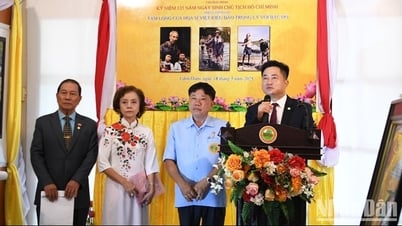


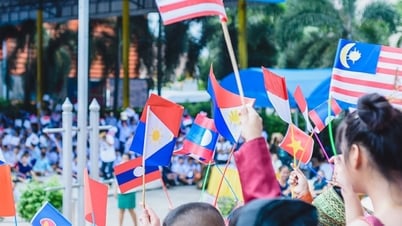

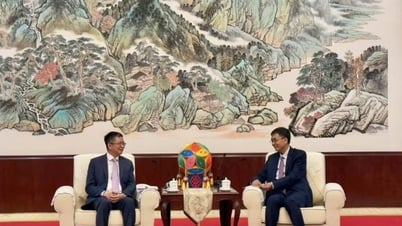
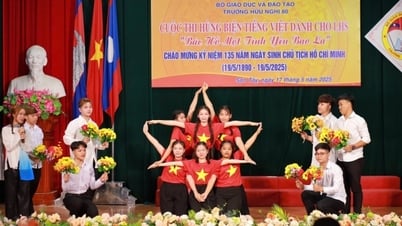

























































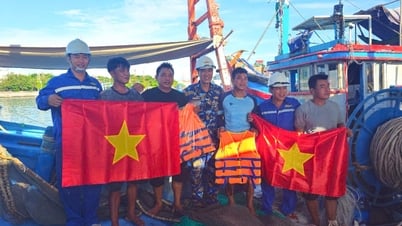

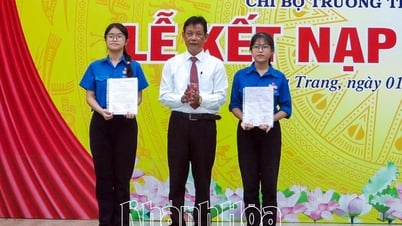
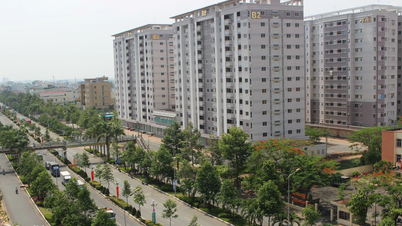

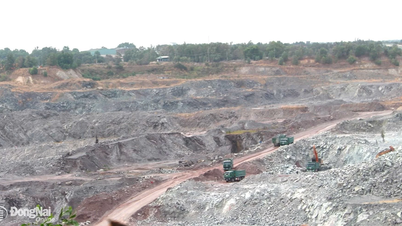










Comment (0)